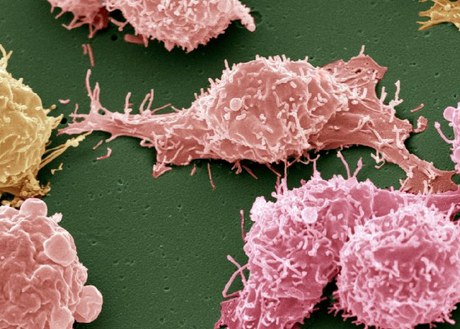Abstract
Background
Osimertinib is a third-generation epidermal growth factor receptor–tyrosine kinase inhibitor (EGFR-TKI) that is selective for EGFR-TKI–sensitizing and EGFR T790M resistance mutations. Evidence suggests that the addition of chemotherapy may extend the benefits of EGFR-TKI therapy.
Methods
In this phase 3, international, open-label trial, we randomly assigned in a 1:1 ratio patients with EGFR-mutated (exon 19 deletion or L858R mutation) advanced non–small-cell lung cancer (NSCLC) who had not previously received treatment for advanced disease to receive osimertinib (80 mg once daily) with chemotherapy (pemetrexed [500 mg per square meter of body-surface area] plus either cisplatin [75 mg per square meter] or carboplatin [pharmacologically guided dose]) or to receive osimertinib monotherapy (80 mg once daily). The primary end point was investigator-assessed progression-free survival. Response and safety were also assessed.
Results
A total of 557 patients underwent randomization. Investigator-assessed progression-free survival was significantly longer in the osimertinib–chemotherapy group than in the osimertinib group (hazard ratio for disease progression or death, 0.62; 95% confidence interval [CI], 0.49 to 0.79; P<0.001). At 24 months, 57% (95% CI, 50 to 63) of the patients in the osimertinib–chemotherapy group and 41% (95% CI, 35 to 47) of those in the osimertinib group were alive and progression-free. Progression-free survival as assessed according to blinded independent central review was consistent with the primary analysis (hazard ratio, 0.62; 95% CI, 0.48 to 0.80). An objective (complete or partial) response was observed in 83% of the patients in the osimertinib–chemotherapy group and in 76% of those in the osimertinib group; the median response duration was 24.0 months (95% CI, 20.9 to 27.8) and 15.3 months (95% CI, 12.7 to 19.4), respectively. The incidence of grade 3 or higher adverse events from any cause was higher with the combination than with monotherapy — a finding driven by known chemotherapy-related adverse events. The safety profile of osimertinib plus pemetrexed and a platinum-based agent was consistent with the established profiles of the individual agents.
Conclusions
First-line treatment with osimertinib–chemotherapy led to significantly longer progression-free survival than osimertinib monotherapy among patients with EGFR-mutated advanced NSCLC. (Funded by AstraZeneca; FLAURA2 ClinicalTrials.gov number, NCT04035486. opens in new tab.)


